Benchmarks: Excel, File Copy, Gaming
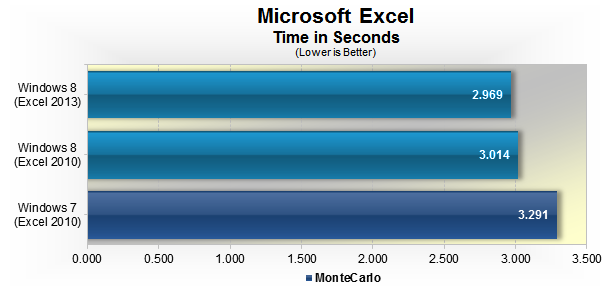
Comparing Windows 8 armed with the new Office 2013 suite we found that it was 10% faster when running our Excel MonteCarlo test against Windows 7 using Office 2010. Even when comparing apples to apples, with both operating systems running Excel 2010, Windows 8 is more efficient using the CPU cycles to its benefit on our MonteCarlo simulation.
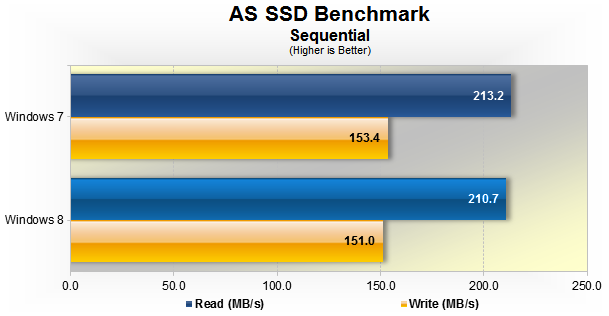
The AS SSD Benchmark was used to measure the performance of the Kingston SSDNow V+ 200 256GB SSD. Here we see that Windows 8 and Windows 7 delivered virtually the same sequential read and write performance.
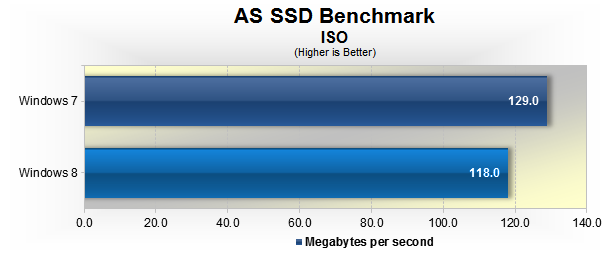
Despite delivering similar sequential read/write performance we found in the ISO benchmark that Windows 7 was 9% faster based on an average of three runs.
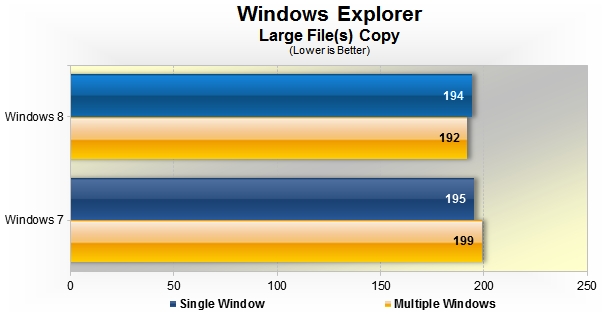
Windows 8 features a new Explorer interface for transferring files, which provides more accurate data on transfer speeds and estimated time of completion. It also stacks multiple transfer windows together. The UI is awesome, but on the performance side of things there is little difference when transferring multiple large files together or individually. Windows 8 and Windows 7 deliver similar performance in both situations.
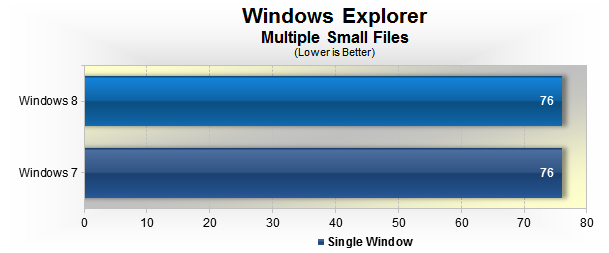
When transferring thousands of smaller files we also found that Windows 7 and Windows 8 offer the same performance.
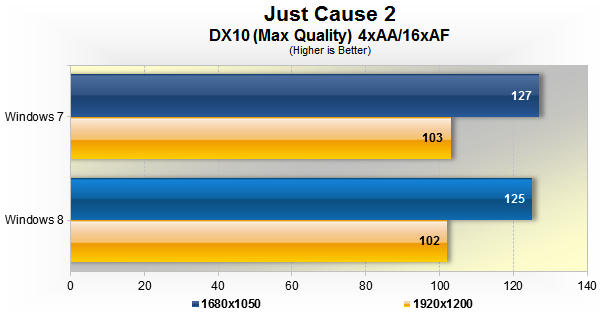
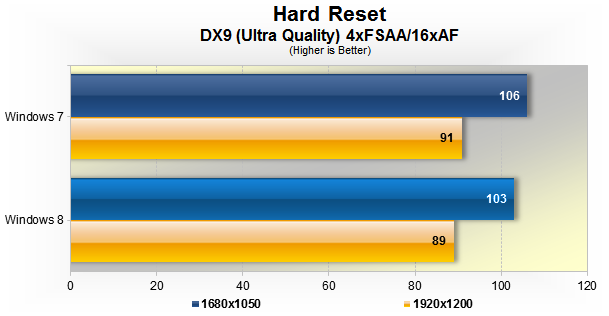
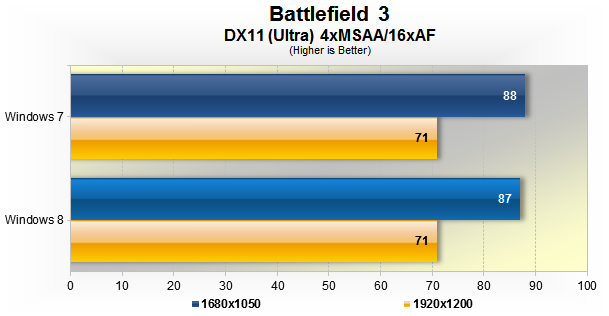
Finishing up we looked at gaming performance using Just Cause 2, Hard Reset and Battlefield 3. Similar to the previous 3DMark test, this relies on graphics drivers more than anything else. As you can see both operating systems provide similar performance with a very slight edge to Windows 7's advantage.
